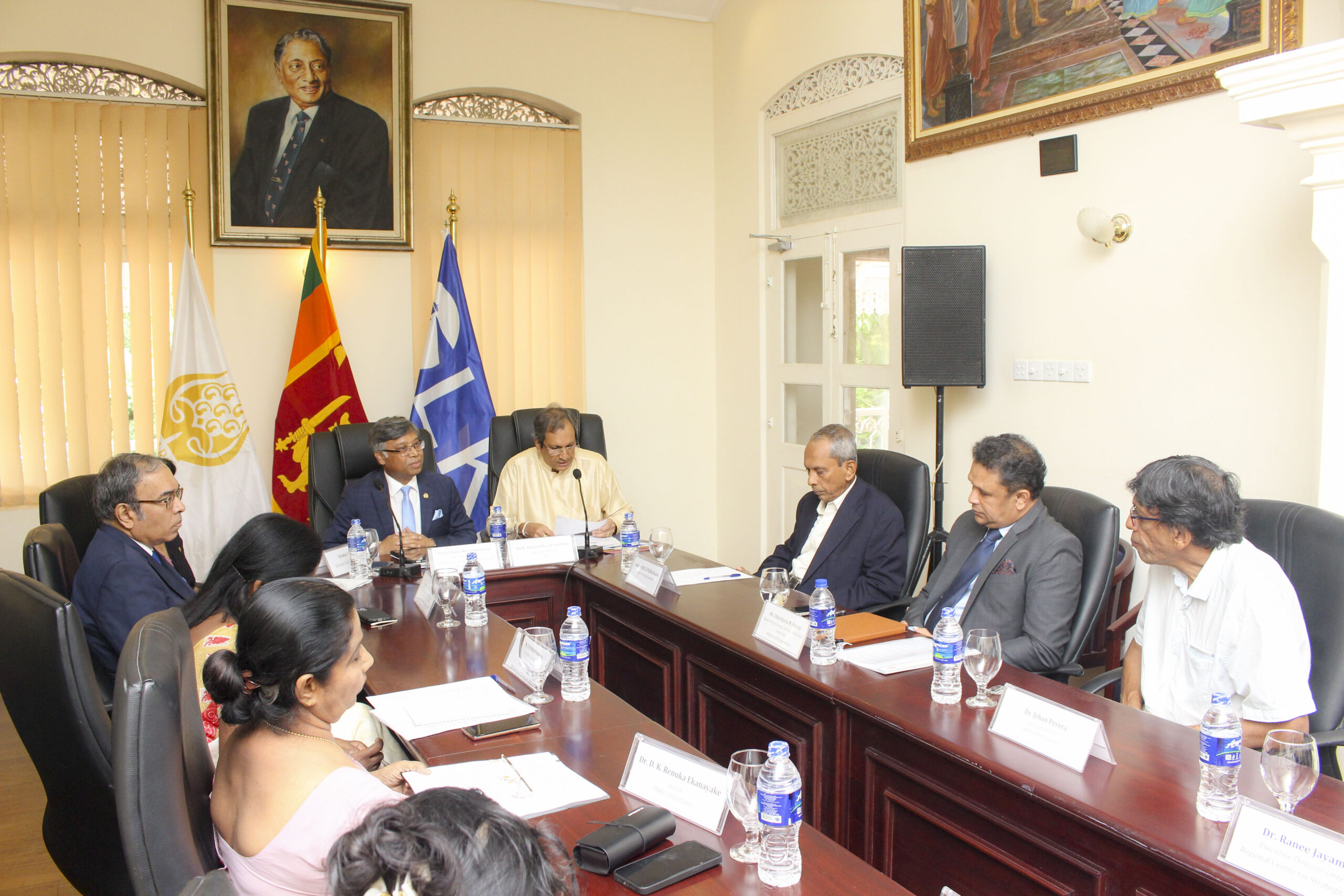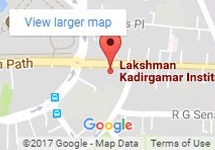
Reading Time: 3 min read
The Lakshman Kadirgamar Institute of International Relations and Strategic Studies (LKI) hosted a roundtable discussion featuring His Excellency Mr. Md. Golam Sarwar, Secretary General of the South Asian Association for Regional Cooperation (SAARC) on 13 June 2024, during his inaugural visit to Sri Lanka. The discussion which focused on ‘SAARC’s prospects for the future’ was facilitated by Executive Director of LKI Ambassador Ravinatha Aryasinha, and attended by a group of eminent policymakers, scholars and stakeholders with past and current association with the developments of SAARC and South Asia.
Opening the discussion Amb. Aryasinha referred to the significant role played by the SAARC in its early years in bringing the region closer together, and that discussions held on the sidelines of SAARC meetings by the leaders had averted and even overcome bilateral challenges faced by member states, including those of Sri Lanka. Despite SAARC’s more limited visibility and role at present, he underscored the critical need to maintain the discourse on South Asia in a meaningful manner.
Addressing the gathering, Secretary General Sarwar commended Sri Lanka’s contribution towards regional cooperation, since it hosted the first-ever meeting of Foreign Secretaries of the member states in April 1981, which paved the way for the establishment of SAARC. Welcoming the opportunity of engaging with an eminent gathering, and acknowledging the challenges faced by the region and SAARC, Amb. Sarwar stressed the imperative for continued regional cooperation among South Asian nations, which is mutually beneficial, desirable and necessary to address the common problems, interests and aspirations of its people and elevate the quality of life. In this context, Amb. Sarwar noted that recently SAARC achieved a significant positive development with the successful convening of its Programme Committee Meeting at the Joint Secretary level on 6th and 7th March 2024 in Kathmandu, Nepal, attended by all member states except Afghanistan. Additionally, after extended intervals ranging from three to six years, SAARC successfully conducted joint governing board meetings of all seven regional centres and specialised boards, marking a notable advancement in regional cooperation efforts. Emphasising the importance of engaging and cooperating with SAARC’s nine observer states, he said programmes such as JENESYS, a partnership with Japan, is set to continue, having signed a new MoU with the Japanese Government. Sharing a positive outlook for SAARC, he expressed his confidence in South Asia’s ability to look beyond any existing challenges and reach a better, more integrated region in the future.
During the open discussion that followed based on Chatham House rules, it was recognised that regional cooperation in priority areas identified by member states and its programmes should be result-oriented and completed in a time-bound manner as there has been apparent deficiency in SAARC in terms of setting targets and implementing them. It was noted that despite their deep cultural, geographical, and historical connections, South Asia remains one of the least integrated regions in trade and connectivity compared to the world. Pooling resources and expertise together, member states would be able to navigate challenges and achieve sustainability. While regretting the absence of a SAARC summit meeting since 2014, the recent meetings of the SAARC Programming Committee and the other Governing Bodies was welcomed. Member states were encouraged to play a critical role to revive the SAARC, as the organization commemorates the 40th anniversary of its establishment next year.
Participants at the roundtable discussion included: Ambassador Esala Weerakoon, Former Secretary General of SAARC & Senior Additional Secretary to the President; Ambassador H.M.G.S. Palihakkara, Former Foreign Secretary ; Mr. Dharshana M. Perera, Senior Director General, Ministry of Foreign Affairs; Ms. T.P. Dharmasena, Director General, SAARC Division; Dr. D.K. Renuka Ekanayake, Director of the SAARC Cultural Centre; Ms. Irosha Cooray, Director ( Education, Security and Culture), SAARC; Dr. Ranee Jayamaha, Executive Director (interim) Regional Centre for Strategic Studies (RCSS); Colonel Nalin Herath, Director General and Acting Director (Research), Institute of National Security Studies (INSS); Professor Maneesha S. Wanasinghe-Pasqual, Lecturer, University of Colombo; Dr. George Cooke; Dr. Jehan Perera, Executive Director, National Peace Council; Ms. R. Kumarihamy, Research Associate of Pathfinder Foundation; Mr. Hemal Prashantha, Senior Superintendent of Police.



